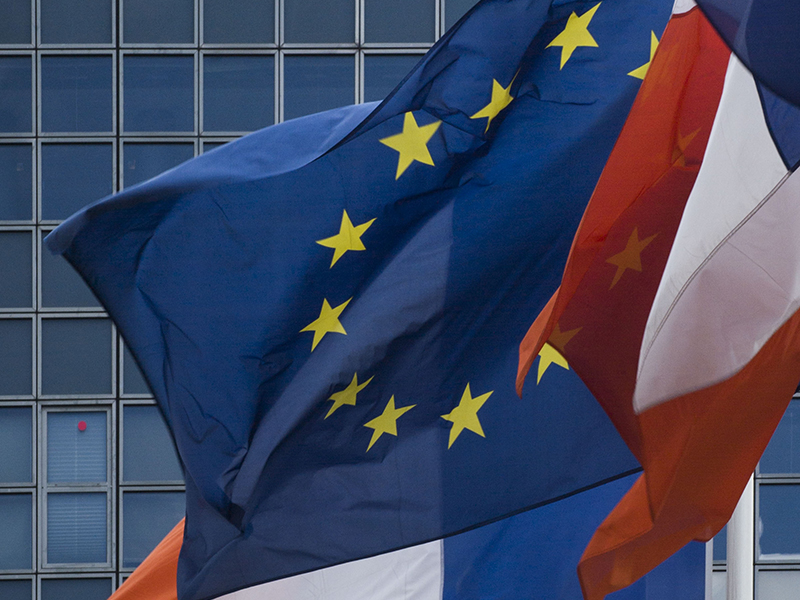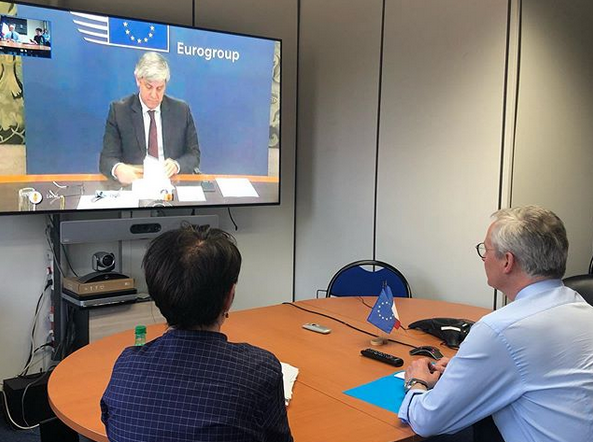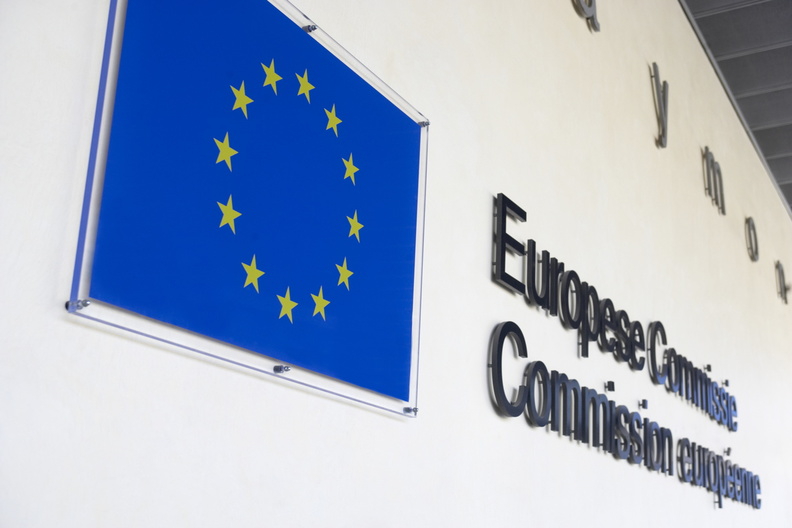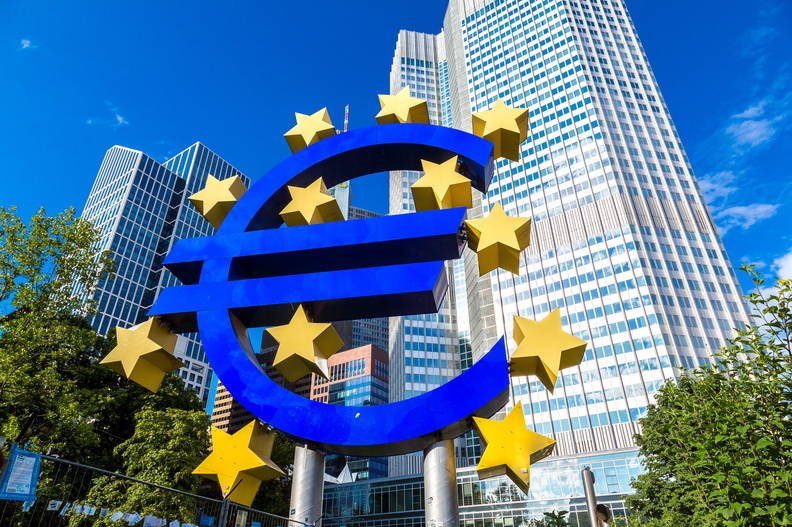What are the EU responses to the Covid-19 crisis ?
In the face of an unprecedented health and economic crisis, the French Treasury and its European partners are acting to support EU businesses and workers, to provide safety nets to Member States affected by the shock and to stimulate the economic recovery once the crisis will be behind us.

1. Measures endorsed by the Eurogroup on April 9th
Strengthening the activities of the European Investment Bank (EIB)Safety nets in the euro area and the EU
Setting up a Support mitigating Unemployment Risks in Emergency in Europe (SURE)
Recovery Fund+ Q&A on the EU instruments and the Recovery Fund proposed by France
2. Actions by the Commission and the co legislators (Council of the EU and European Parliament)
Flexible application of th EU fiscal rules
Flexible application of th EU state aid rules
Mobilization of the EU budget
Protection of strategic European companies in the context of the epidemic and availability of essential health products3. Actions by the European Central Bank
4. Actions by the European Investment Bank
1.Measures endorsed by the Eurogroup on April 9th
The Eurogroup committed to work on and implement several instruments to ensure an adequate response to the crisis and prepare the ground for the recovery.

-
Strengthening the activities of the European Investment Bank (EIB)
The EIB group has proposed to create a pan-European guarantee fund of EUR 25 billion, which could support EUR 200 billion of financing for companies with a focus on SMEs, throughout the EU, including through national promotional banks. It could amount more than 1 % of the EU GDP as the size and the leverage effect of this fund are significant. This pan-European guarantee fund usefully complements the EIB’s first package of EUR 40 billion by pooling more resources and allowing risk-sharing across the EU and by strengthening the national schemes already existing.
-
Safety nets in the euro area and the EU
Finance ministers have announced the use of two financial assistance instruments: the European Stability Mechanism (ESM) and the Balance of Payments Facility.
The ESM is a financial institution created by euro area Member States to provide adequate financing to its Member States in order to guarantee the financial stability of the Economic and Monetary Union. In the context of the pandemic, access to the ESM credit line could amount 2 % of the respective member’s GDP. This would represent around EUR 240 billion for the whole euro area. Access to this credit line would help Member States to support domestic financing of direct and indirect healthcare, cure and prevention related costs due to the COVID-19 crisis.
In parallel, the Balance of Payments facility can provide financial support to Member States that have not adopted the euro. The Commission could borrow on the markets and grant financial assistance of up to EUR 50 billion to non euro area Member States.
-
Setting up a Support mitigating Unemployment Risks in Emergency in Europe (SURE)
The Commission proposed on April 2nd to set up a temporary instrument to provide financial assistance, in the form of loans granted on favourable terms from the EU to Member States, of up to EUR 100 billion in total. While respecting national competences, this instrument will help Member States to support public expenditures related to employment protection, in particular the national short-time work schemes and other similar policies, and sanitary measures.
Member States committed to take forward without delay this proposal in the legislative process.
-
Recovery Fund
On the basis of a French proposal, the Eurogroup has also agreed to work on a Recovery Fund to prepare and support the economic recovery. This Fund would provide funding through certain programmes within the EU budget designed to kick-start the economy and to ensure EU solidarity with the most affected Member States. This Fund would be temporary, with a targeted purpose - investment- and commensurate with the extraordinary costs of the current crisis. It will help spread those costs over time through appropriate financing, which need to be further discussed.
France proposed that this Fund could be financed through common debt issuance of EU Member States to support the EU budget and provide a solidarity response of the EU to the crisis.
Q&A on the EU instruments and the Recovery Fund proposed by France
- Why having an EU response in addition to national responses?
EU action is essential to ensure the most effective economic response across the EU and to prepare the rapid recovery of the economy. For this to happen, we need to strike the right balance between budgetary and monetary policies.
In the euro area, monetary policy is the prerogative of the European Central Bank, which has decided on a powerful package to support liquidity and financing conditions to household, businesses and banks.
Governments have announced numerous national measures to respond to the urgency of the situation and support businesses and workers. In the euro area, while fiscal policy remains a national prerogative, proper coordination is essential for the smooth functioning of Monetary Union, and is a regular item on the agenda of the Finance Ministers' meetings.
In addition to the coordination of national policies, the European response relies on the EU budget, which must support national policies where the needs are the greatest, finance common public goods with economies of scale and create positive spillovers. The financial assistance instruments also ensure the sustainability of the financing of the economy and provide liquidity to the Member States requesting it.
Once the health crisis will be over, Europe must invest in a spirit of solidarity in strategic sectors with a promising future, to enable the economy to restart as quickly as possible.
- What would the “Recovery fund” be used for and why do we need it on top of the other instruments?
The measures decided at the level of the European Central Bank, the European Commission, the European Stability Mechanism (ESM) and the European Investment Bank (EIB) are an essential first step in the response to the crisis. They are a first line of defence to maintain financial stability and enable Member States to support economies and protect workers.
At a time when Europe is facing the greatest recession since the Second World War - unprecedented in terms of the scale of the shock, and its lasting impact on economies and growth models - the President of the Republic and the Minister for the Economy and Finance have proposed to introduce a genuine recovery programme at European level, designed to provide solidarity to the Member States most affected by the crisis.
The added value of a recovery fund, as designed by France, lies in the pooling of budgetary resources, which will be essential to finance the extraordinary costs induced by the crisis, and the use of debt to spread these costs over time. The idea is to ensure that in all Member States and in particular those countries that have been most affected by the virus, the necessary measures for economic recovery could be financed. This fund would be temporary and targeted to the most pressing economic investments necessary to kick start the economy once the health crisis has receded. It would be the concrete expression of European solidarity to ensure that no region is left behind and that we face together the historic crisis that is affecting our continent and the world.
- How will the fund be financed?
France considers that the recovery fund could be financed by borrowing on the financial markets. In order to benefit from the best financing conditions, the issued bonds would be backed by a joint guarantee from the Member States and would be rolled over until their reimbursement. This would provide significant resources to finance specific existing or new programmes from the EU budget directed in particular to the most affected countries. The use of joint issuance will allow the gradual repayment of loans and spread the costs of this crisis over time.
- What would be the link between this Fund and the Multiannual Financial Framework?
First, it will be important to draw on the European Commission’s financing capacities to ensure that the funds raised on the markets to issue debt are as effective as possible. In addition, the recovery fund would channel further resources to the European Union budget in order to finance existing or future programmes. These programmes would be considered as priority programmes to mitigate the effects of the crisis and kick-start the economy. Moreover, the more ambitious the Multiannual Financial Framework is, the larger the fund could be.
- Is this Fund separated from the EU budget?
The recovery fund should have four characteristics:
- It must be set up rapidly, in order to provide an immediate response to the crisis and support the recovery of our economies very quickly.
- It must be substantial enough to meet the needs of economic recovery.
- The cost must be spread out over time, via a common debt, in order to repay these exceptional measures as soon as the economy picks up. Part of the exceptional measures, dedicated to respond to the crisis, will be financed through debt, which will be repaid when the economy has recovered. Indeed, raising taxes today would have a very negative impact on businesses and households that are already weakened by the crisis.
- The fund should finance common expenditures through the EU budget (and not loans), where the needs will be the greatest and where they will be most useful for the economic recovery.
France is therefore open to having this recovery fund included under the Multiannual Financial Framework and via the European Union budget, as long as we find innovative mechanisms to meet these characteristics, within the framework of the European treaties.
- Are government debts shared and mutualised with this fund?
National debts are not shared and mutualised, neither past nor future debt. Only the financing of crisis-related measures and recovery measures at European level would be shared and all Member States would then repay according to a pre-established contribution key.
The fund as envisaged by France would fully comply with the obligations of the Member States under the current treaties, in particular Article 125 of the Treaty on the Functioning of the EU (TFEU), which contains a "no bail out" clause. This article prohibits the Union or the Member States from assuming the financial commitments of another Member State. This is why the European Stability Mechanism, for example, makes loans with conditionalities to ensure that the Member State is able to repay them.
Here, the logic of the fund is different. On the expenditure side, Member States finance a shared commitment, via the EU budget and not via national budgets. On the revenue side, the fund's guarantee structure would ensure that everyone remains accountable for their commitments, even in the unlikely event of default.
- Isn't this fund a way for some indebted European countries to make other Member States pay the cost of the crisis because they are highly indebted?
Helping the countries affected by the crisis will benefit to every EU Member States.
The virus knows no borders, and if one country does not have the means to stop it from spreading, all partner countries will suffer from its consequences. Europe must therefore ensure that each Member State can cope with the health crisis, if necessary by imposing drastic measures to combat the epidemic, such as containment. These measures have a very high economic cost, which may require transfers between Member States in order to be sustainable.
Moreover, the crisis is exogenous, i.e. it is not the responsibility of any Member State. European solidarity must play its role. Even if countries have with different starting points, every country should have the means to recover from the crisis.
Moreover, the European economy is the most integrated in the world, with very close and intense trade relations. Each Member State imports mainly from its European partners, who are also the main customers for its exports. So any difficulty encountered by one Member State has a direct impact on exporting companies and economies relying heavily on exports.
Finally, by targeting the Member States most affected by the crisis, this fund will help to avoid economic divergence and financial fragmentation, thus ensuring the sustainability of monetary union and the resilience of the internal market.
- What will be the size of the fund?
It is difficult for the moment to assess what the investment needs will be once this crisis is over. It will therefore be necessary to calibrate the size of the fund once the impact on our economies will be better assessed. Nevertheless, it is clear that the needs will be unprecedented - several hundreds of billions euros - and that, beyond the economic consequences, this crisis has highlighted major shortcomings in terms of the Union's strategic autonomy and industrial and technological sovereignty. This fund could therefore also be used to support a new European industrial policy aimed at ensuring greater economic sovereignty.
2. Actions by the Commission and the co legislators (Council of the EU and European Parliament)
Over the past weeks, the European Union has put in place a series of economic and financial measures designed to address the consequences of the pandemic.

-
Flexible application of the EU fiscal rules
Given the extent of the crisis, on March 23rd the ECOFIN Council endorsed the Commission’s proposal to activate the general escape clause in case of severe economic downturn, to allow for a coordinated European response to the pandemic. This clause had never been activated before. It allows Member States to take adequate steps to address the ongoing crisis. As a result, this clause authorizes Member States to depart from the fiscal targets set by the Council (the targets of the preventive arm, meaning the structural adjustment recommendation and the expenditure benchmark). France is making full use of the exceptional activation of this clause to enact the necessary measures to support healthcare systems and safeguards to the economy.
-
Flexible application of the EU state aid rules
The Commission adopted a two-step approach. It first offered maximum flexibility within the existing framework by allowing Member States to grant large-scale liquidity support to struggling undertakings and to compensate those that have been particularly hit (transport, tourism, organized events) for damages suffered due to the outbreak. Then, the Commission took a step further and released a temporary framework deviating from standard state aid rules in order to boost the support to undertakings. This framework is bound to be adjusted relatively to the developments of the crisis, namely regarding export credits.
On that basis, the Commission cleared three French state aid measures aimed at supporting the hardest hit undertakings. Two of those measures will allow BPI France (France’s public investment bank) to grant state guarantees to loans and credit lines incurred by undertakings with up to 5,000 employees. The third measure will provide banks with state guarantees on the portfolios of new loans to all kinds of undertakings.
-
Mobilization of the EU budget
The European Union adopted on March 30th the Corona Response Investment Initiative put forward by the Commission. The initiative will mobilise EUR 37 billion to support investment through the outstanding amounts of structural funds. These funds will be aimed at strengthening healthcare systems, supporting SMEs’ liquidity, financing short-time work schemes and local public services. Member States will also benefit from greater flexibility for transferring money between programs pertaining to cohesion policy so as to redirect resources where they are most needed.
The Commission has also proposed to activate the Emergency Support Instrument so as to provide direct support to Member States’ healthcare systems. To that end, the Commission is mobilizing EUR 3 billion from the available margins in the 2020 EU budget. Namely, 300 million euros will be allocated to the medical equipment reserve RescEU. This emergency support instrument will allow the EU to provide a coordinated response by funding concrete measures directly related to the needs expressed by Member States. As an example, the Commission will support the import, transportation and distribution of protective gears, while targeting the regions hardest hit. The Commission will also contribute to the transportation of patients in need towards cross-border hospitals that still enjoy some spare capacity or to the speeding up of the design and production of new medication and testing methods.
Finally, the Commission decided to mobilize other funds so as to support Member States in financing health expenditures and providing guarantees to loans aimed at SMEs. As a result, a billion euro will be allocated towards the European Investment Fund to encourage banks to grant liquidity support to SMEs. Thanks to such guarantee, roughly EUR 8 billion of financing will be deployed to come to the rescue of at least 100,000 SMEs.
-
Protection of strategic European companies in the context of the epidemic and availability of essential health products
On March 25, 2020, the European Commission published guidelines regarding the protection of European technologies and critical assets in the context of the current crisis and its economic consequences, such as, for example, the consequences of stock market volatility on European companies’ market value. Its objective is to coordinate the application by Member States application of foreign investments screening with the Commission to preserve businesses and critical assets, in particular - but not exclusively - in areas such as health, research medical or infrastructure essential to our security and public order. The guidelines help Member States bring forward the implementation of the European cooperation system created by the regulation of March 19 2019.
The European Commission also set up on 15 March an authorisation system for the exports of personal protective equipment outside the European Union, including masks in particular. In France, the Dual-Use Goods Service manages these exports and has to guarantee the availability across the UE of the products most needed to fight the epidemic and fight against shortages. This autorisation system was renewed on April 24 for an additional month, in a targeted manner, and it will be gradually withdrawn as tensions on supply ease, in line with the G20 commitments, so that all the countries affected by the virus can have access to the products necessary to protect their population.
3. Actions by the European Central Bank

The ECB has announced a series of measures since March 12th ensuring financial stability by maintaining a smooth functioning of securities markets and bank refinancing. It allows Member States to finance the necessary emergency measures, to facilitate SMEs’ access to credit and to ensure favorable financing conditions for households. The ECB is taking action to ensure the smooth transmission of monetary policy in the whole of the euro area, allowing for currency stability, and ultimately, laying the ground for a stabilization of the economy and the recovery.
- First, the ECB announced a new program of securities purchases (public and private) bringing its net purchases over the year to more than EUR 1,100 billion (EUR 20 billion monthly purchases were already recorded, to which were added EUR 120 billion, announced on March 12th and then EUR 750 billion on March 18th). These purchases make it possible to ensure the smooth functioning of securities markets, which is necessary for sovereign and corporate financing. This program also prevents the fragmentation of the Euro Area and favors the smooth transmission of monetary policy within the single currency area.
- The ECB also decided to make the long-term refinancing of banks and credit institutions more flexible, by allowing them to benefit from a reduced rate of - 0,75% if they leave their outstanding loans to the real economy unchanged. If banks fail to lend sufficiently to undertakings and households, the applied rate will thus be higher. As a result, the ECB allows households and undertakings, especially SMEs which rely less on securities markets to meet their financing needs, to also have access to affordable credit.
- On April 7th, the ECB has broadened the scope of securities accepted as collateral in compensation for bank refinancing, thus ensuring smooth banking liquidity. By broadening this framework, the ECB further incentivizes banks to lend to households and undertakings.
- Lastly, the ECB is also in charge of the direct supervision of large banks and credit institutions of the euro area. To ensure continued financing of the economy, it has made prudential rules more flexible to avoid a tightening of credit conditions which would have stemmed from the deterioration of the quality of banking assets.
4. Actions by the European Investment Bank

The mobilization of the EIB is an integral part of the common European response to the crisis. Whereas Member States do not enjoy the same capacities to address the economic consequences of the crisis, the EIB provides shared resources, geographical mutualisation of risks and contributes to equating SMEs’ financing conditions across the EU.
- The EIB has thus put forward a first package of EUR 28 to 40 billion designed to support the investment and liquidity needs of SMEs in Europe (credit extension and interest-free grace periods for paying back loans, factoring instruments to remove liquidity constraints …). This package stems from the redeployment of existing guarantees of the EU budget (EUR 8 billion), a re-prioritizing of certain existing financial instruments (EUR 20 billion) and a potential mobilization of new guarantees based on the EU budget (EUR 12 billion).
- In addition, the EIB has also presented a EUR 5 billion lending plan to the health sector in the EU, which would help finance urgent needs in terms of facilities and equipment, better preparation to future pandemics, drug manufacturing and, more broadly, high-impact projects.